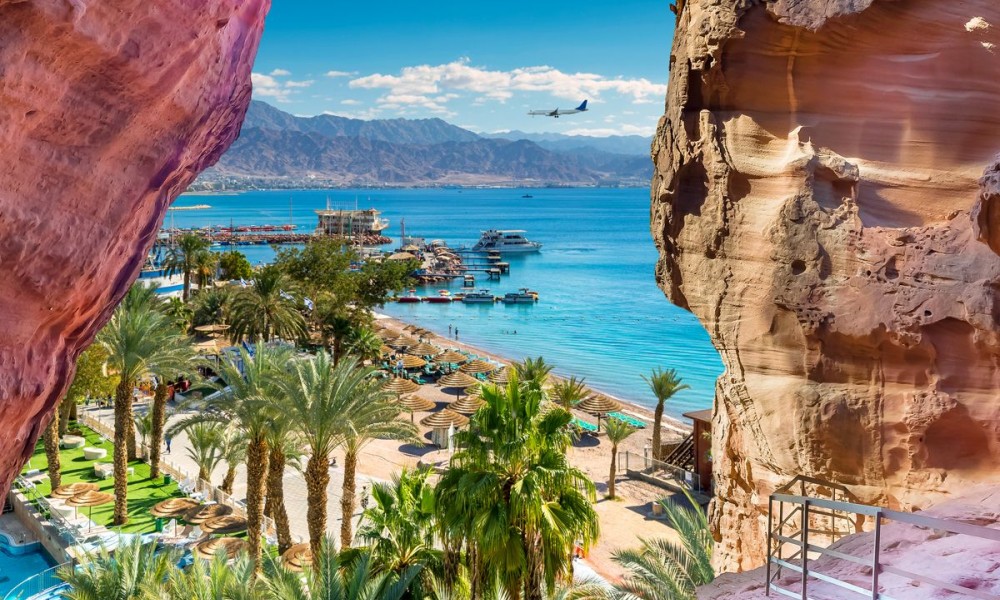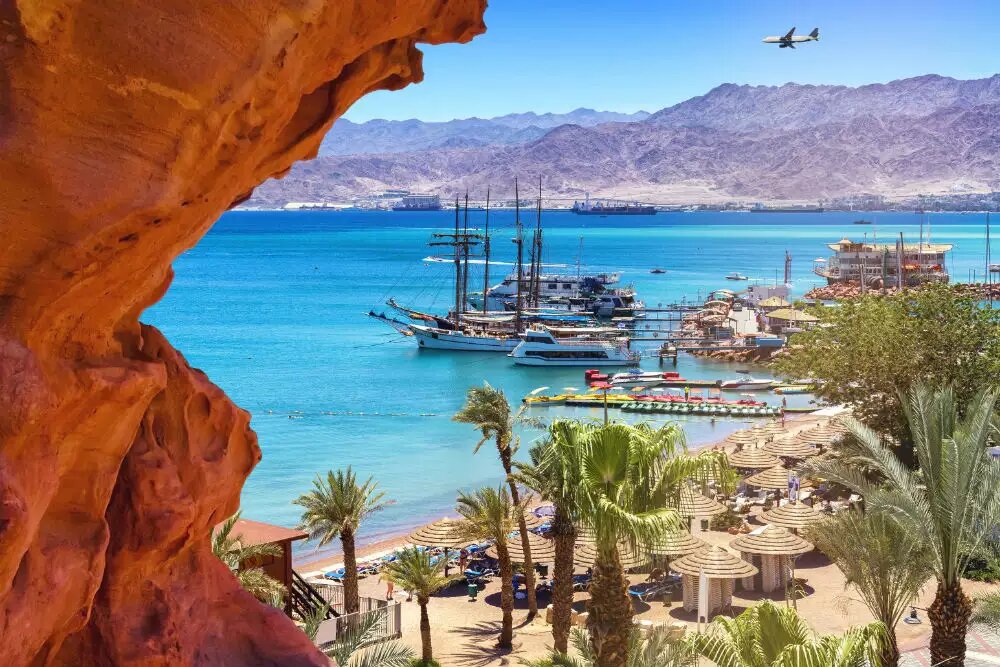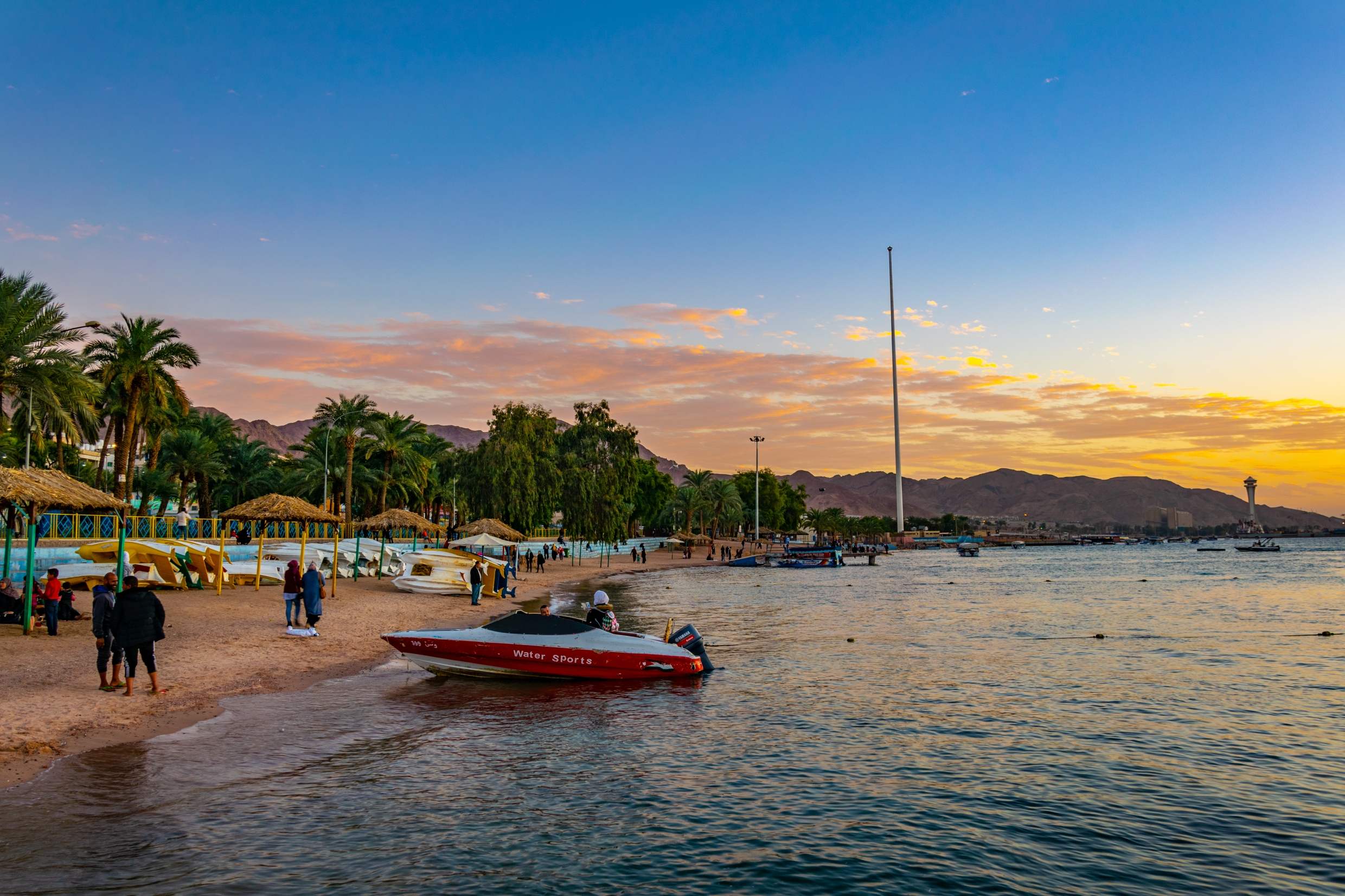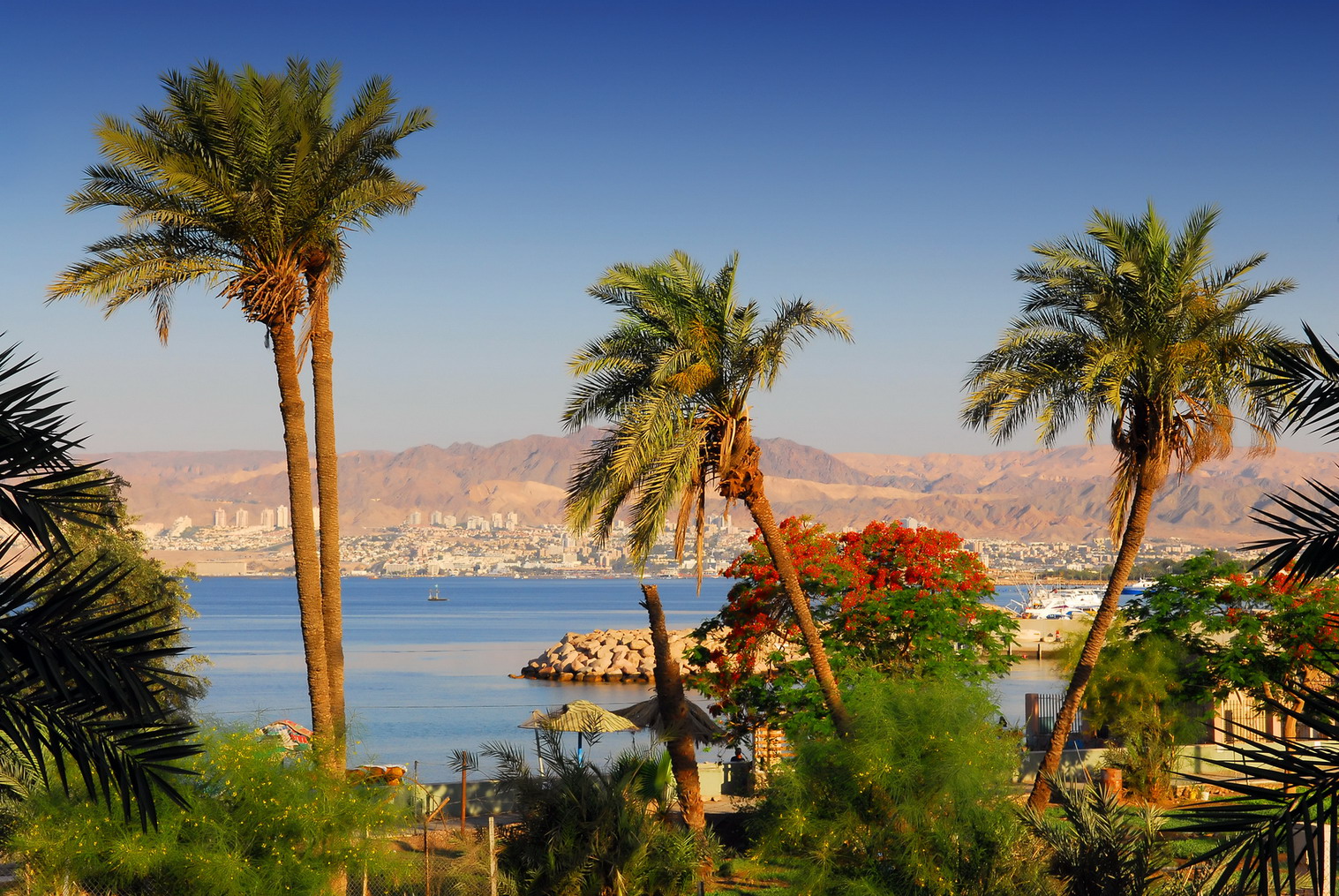Aqaba resort: Sea in Jordan style

The sandy beaches of the seaside resort considered to be the cleanest on the Red Sea coast. A deep waters of indigo colour, long time ago gain iconic status as the best spot for scuba diving. Indeed, the depths hide many exciting discoveries. This part of the sea is home to about a thousand subspecies of fish, a third of them lives only in local waters. Aqaba coastal waters are teeming plethora of marine life including schools of gobies, triggerfish, parrotfish, clown fish, needle fish, waving anemones.
Two of the most unusual creatures are Heterocongridae eels, which meander in water so that barely visible to the naked eye, and the biggest fish in the world - the whale shark. Overgrown in breadth and height coral gardens make this underwater world especially attractive. They are located literally next to the beach, and one can enjoy the spectacular sight just using simple waterproof goggles. The most common are fungian corals, Montipora, ordinary branching corals. However, observant divers come across a rare species of a black tree-like coral. It is known by the fact that it was first discovered in the waters of the Red Sea by the King Hussein of Jordan. But this is not a complete collection of the Red Sea. On its bottom lies a lot of vessels, which still remain a mystery. Photo timesofindia.indiatimes.com
Photo timesofindia.indiatimes.com
For those who are afraid of deep dive into indigo water, Marine Science Station was opened in Aqaba. On its territory, in huge tanks live large part of representatives of the local marine inhabitants. From translucent fish with size of a fingernail, to the turtles and crocodiles. The station often gathers researchers, scientists who hold conferences, discuss environmental issues relating to the protection of nature in entire Middle East. Photo a-a.d-cd.net
Photo a-a.d-cd.net
Though, perhaps, Aqaba's greatest asset is the Red Sea itself, Jordan's splendid resort is famous not only for its water area. It is a microcosm of all the good things Jordan has to offer, including Arab Ornithological Station, the Archaeological Museum, the Museum of Antiquities, Mamluk Castle or Aqaba Fort. It rises on a coastal spit, and not far away, on an island in the Gulf of Aqaba is seen Saladin Fortress who was an enemy to Richard the Lionheart. The city played a large role during the Arab uprising in the last century. Then, the local people led by Lawrence of Arabia, recaptured the fort from the soldiers of the Ottoman Empire. Photo touristjourney.com
Photo touristjourney.com
Aqaba is not a big city. For the hardy traveller it will not be difficult to examine it all, but a curious guest would certainly appreciate numerous bazaars. There operates the famous gold market: jewellery of the highest standard and fashionable designs sells there. You can wander for hours among the bookshops: this part of the bazaar offers books for every taste and in different languages, both new editions and antiques. There is a huge selection of books on history, culture, religious studies in Jordan and the entire Middle East. Shopping in Aqaba is sufficiently profitable: the city is a part of the free economic zone, and goods that are traded here are much cheaper than across the country. By the way, citizens try to take an advantage, and therefore on the outskirts of the resort city there are police stations that randomly examine vehicles to see if Jordanians carry to north any goods in large quantities. The exceptions are foreigners who are not treated with suspicion, since anyway they won’t be able to bring anything in unauthorized amounts across the border. Photo selfway.org
Photo selfway.org
Locals love their hometown. They often come to the beach and have dinner in the open air. Some rent a boat and go to sea, anchored near the coast, the have their meals enjoying the warm rays of the setting sun, they just relax, talk to each other. At the same time along the beach spreads lasting fragrance of strong Arabic coffee with notes of cardamom. Night falls, quiet, relaxing, very cosy.
Cover photo whaletraveljo.com





















